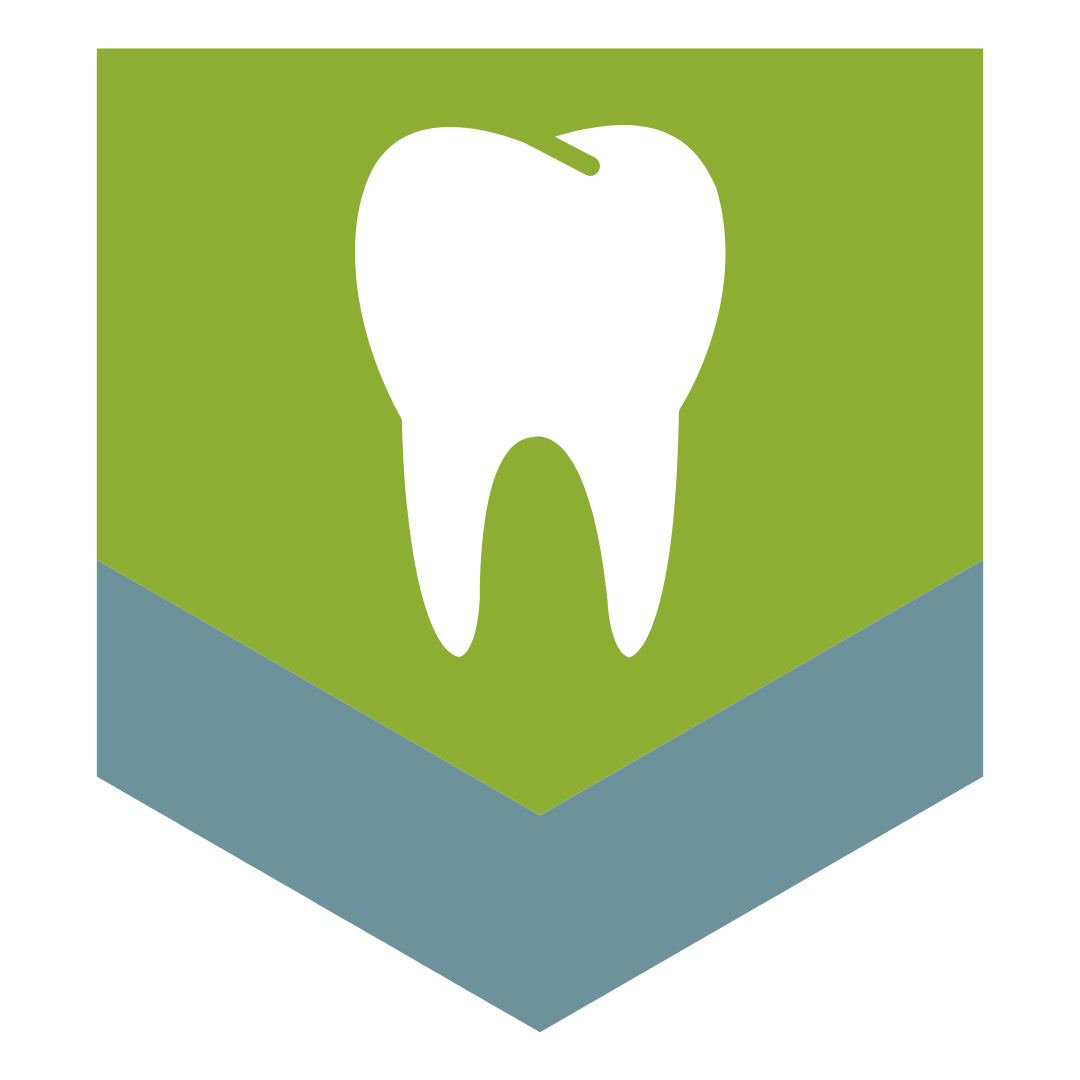Your oral health is an important part of your overall health. Besides the fact that your mouth, with all its teeth and your tongue, is responsible for helping bring nutrition into your body, there are several additional ways your dental health affects you. Studies have proven connections between gum disease and cardiovascular disease, diabetes, pneumonia and even the health of a pregnancy.
Uptown Dental in Marion, Iowa, has developed this complete guide to your oral health to help you in your journey to maintain the health of your teeth, gums and body. Many people need to know why something needs to be done, and this page on oral health will provide the reasons behind the oral health care activities we and other dentists recommend.
ORAL HEALTH—AN OVERVIEW
Your Mouth Matters
People ask why oral health matters. The fact is, taking care of your teeth and gums twice a day, every day, takes as little as 10 minutes. In a little over an hour a week, you can enhance your overall health by consistently managing your oral health.
The same goes for your kids. Teach them healthy habits while they are young so they will be set to have good teeth and great oral health their whole life. Plus, you won’t have to micromanage their routines if you are able to instill those healthy habits in their younger years.
Three good reasons you should care about your oral health as much as the rest of your body include:
- Your teeth help break down foods that keep you healthy and strong.
- Your gums support your teeth and have a connection to the rest of your body.
- Your smile can have an effect on your self-esteem, an important part of your mental health.
To be more specific, medical connections exist between the health of your gums and other conditions. A lot of bacteria and inflammation in your mouth has a correlation with cardiovascular disease, pneumonia and HIV/AIDS. Pregnant women have higher risk pregnancies when they have gum disease. People with diabetes have a higher risk of infection, and as such, should take good care of their oral health to prevent infection in the mouth. Learn more about the ways your oral health affects you. Everything is connected, and good oral health care helps avoid complications related to bacteria in your mouth and body.
Our 12 Days of Toothmas blog post covers the most important things you can do to take care of your teeth, as well as what you should expect for your children’s teeth. If you’re ready to review more details of oral health, keep reading.
AT-HOME ORAL HEALTH CARE
Everyone already knows the two main ways to take care of your oral health at home: brushing and flossing! You can also benefit from fluoride mouthwash.
How to Floss & Brush Your Teeth
With an efficient oral health routine, you can take less time to get more benefit from your dental hygiene practices. When you take all of these tips into consideration, they add up to better oral health. Make sure you are Ensuring an Effective Dental Hygiene Routine - these three tips cover the most important steps you can take to take care of your oral health at home.
- Brush your teeth using fluoride toothpaste twice a day for 2 minutes each time. You can use a regular toothbrush or an electric toothbrush to gently brush in a circular motion. Use fluoride toothpaste to expose your tooth enamel to the hardening effects of fluoride. Brushing your teeth helps remove the bacteria that turn into plaque. We recommend brushing before breakfast to protect your teeth and before you go to bed. This helps allow food acids to dissipate, making brushing more effective.
- Floss your teeth at least once a day and after getting food stuck in them. Flossing reduces plaque between and around teeth and stimulates the gums. Get the floss around each tooth and down past the gumline for the best results.
- Add mouthwash to your daily routine. Fluoride-based mouthwash can strengthen your teeth and also help with plaque removal. It isn’t just about having good breath! Mouthwash helps your teeth and gums stay healthy between brushing and cleanings at the dentist’s office, because it gets between the teeth and reduces the acid in the mouth.
Eat Well
Many raw vegetables and fruits are beneficial for your teeth, while processed foods and sweets should be avoided. Adding fresh, nutritious options as well as neutralizing dairy products can make a difference to your teeth and gums—and your overall health. In the 12 Days of Toothmas blog post, we’ve included 10 foods for brighter teeth and 11 essential minerals and vitamins to help you keep your oral health in great shape.
You should also familiarize yourself with Foods to Avoid for Your Dental Health. Avoid sugary, starchy and acidic foods. Sugars and starches have a way of sticking to your teeth, which can promote plaque development and tooth decay. Many beverages should be drunk sparingly due to the acid that can damage enamel or the dark color that causes tooth staining. Chewing ice also falls into the list of notorious things to avoid. It can cause crazing and cracking of teeth that weakens the enamel and any fillings you might have.
Avoid Tobacco Products
We should also mention that smoking and chewing tobacco have not only been shown to have a connection with cancer, but they stain teeth and gums. While it may be difficult to quit this addictive habit, your family will be relieved when you quit. We suspect your body will thank you, as well, for removing this toxin from your life.
When you follow these basic steps for good at-home oral health care, you will benefit from having healthier teeth, shorter dentist visits and better overall health. Now, keep up those healthy habits and model them for your family!
KIDS' TEETH
Now, let’s focus on your children’s oral health. From the moment you become a parent, you can help your child through all the stages of development of their teeth. For several years, you will have to take the lead in teaching your child how to care for their teeth. Remember that it will serve you well to model good daily habits for your kids, too, so show them that flossing and brushing is just a normal part of your day-to-day routine.
Start Children Off Right
From the time children are about 8 months old throughout their childhood, parents need to teach children about tooth care. Once healthy habits have been formed, you also need to ensure your child receives regular dental care.
Within your baby’s first year, you should make your child’s first dental visit, so we can check on your child’s tooth development and educate you on tooth and gum care. Choosing the right dentist will make your life easier, because we will support you in teaching children how important it is to take care of their teeth!
Before any teeth come in, it can be helpful to follow feedings with a brief rub of the gums with a warm washcloth or your finger. When the first tooth arrives, you will know it, and you’ll be prepared to give that tooth a gentle brushing. Toothpaste isn’t needed at first. You can use water and a very small, soft-bristled toothbrush.
Bottle and pacifier habits should also be managed. Leaving the baby with a bottle of milk or juice at night should be avoided. If a bottle helps your baby sleep, switch to water. Pacifiers are fine for a time, but long-term use can be harmful to their developing teeth. Thumb sucking can also affect the mouth structure. Ask your dentist for more details about how to keep your child’s teeth healthy.
Be a Role Model
As kids get older, they can transition to brushing their own teeth. They usually need help until they can tie their shoes. After that, they will watch you, so you can brush alongside your kids and use fun music and activities to get them in the habit. Make brushing a game with an app on your smart phone or tablet!
To support their oral health and healthy habits, take kids to the dentist every six months. We will be happy to teach your children about brushing and flossing to reiterate the routines you have at home. We do our best to make it exciting to visit our offices and learn more about oral health.
Provide Healthy Choices
As little ones turn to teenagers, they begin to make more of their own choices. This includes food and beverage choices. At home, you can help manage their choices by limiting their access to soda, energy drinks, sugary foods, juice, and coffee. Many parents simply don’t put soda in the shopping cart. You can avoid a whole aisle at the grocery store! Another approach to these beverages is to reserve them for special occasions only. The same goes for sweets.
Put more fresh fruits and vegetables in your grocery basket to satisfy kids who have a sweet tooth. For example, apples and carrots provide a hint of sweetness while also being good for the teeth and gums. If possible, avoid letting older children have loaded lattes or bottled coffee drinks. Not only are these drinks major sugar bombs, but the coffee in them also stains teeth and contains caffeine, none of which contributes to a healthy growth pattern in children.
For other great tips on oral health for kids, review this oral health blog post. The tooth tips provided include nutritional guidance to enhance oral health, tooth care during pregnancy and other helpful oral health reminders for the whole family.
GOING TO THE DENTIST
A key component to your oral health involves seeing a dentist on a regular basis. The recommended interval is every six months. Twice a year, you will get your teeth examined and cleaned. The dentist will also check your gums for issues, as well. At longer intervals, you will get x-rays taken of your teeth. These visits allow your dentist to keep closer tabs on the health of your teeth and gums.
Choosing a Dentist
Choosing a dentist for your family means that you can get the regular care you need and also have a dentist to help you in case of an emergency. For starters, you can learn more about What to Look for in a Family Dentist. It is so important to find a dentist that is right for your family. If you have small children, a good dentist helps keep them calm and educates them on oral health.
Some statistics show that 25 percent or more of the population has dental anxiety or fear of the dentist. Here at Uptown Dental, we would like to reduce your anxiety so you can be more comfortable and at ease when you visit us. We’ll work with you to accommodate you and your family with compassionate care and gentle dental treatments.
What to Expect
Dentists offer a number of services, including general, cosmetic and restorative dentistry. The basis of oral health lies in general dentistry—the regular office visits every six months with tooth cleanings, exams, and cancer screenings. For a first visit at Uptown Dental, we will plan to take x-rays at your first visit to provide a baseline of diagnostic images.
Cleaning your teeth involves the dental hygienist using a variety of tools to remove tartar and stains from your teeth. When you take the recommended steps for good oral health care, cleaning will take less time—another great reason to brush and floss regularly!
Gum disease evaluations also take place at your dental visits. This allows us to identify periodontal disease, which is cause by a buildup of plaque or tartar. Without treatment, you can lose gum tissue, teeth and eventually, bone tissue. Again, the link between gum disease and other serious diseases offers a compelling reason to take good care of your oral health and visit your dentist regularly.
Oral cancer screenings also take place during visits to Uptown Dental. We look for signs of abnormal growth inside the mouth on the tongue and soft tissue and even examine the head and neck. Uptown Dental uses a VELscope device in addition to inspecting the areas for oral cancer.
Technology plays an important role in dental care today. Uptown Dental employs a number of devices to assist with general, restorative and cosmetic dentistry. Your safety and service are always our top priority, and these technologies help us provide you with the best oral health care available.
Restorative & Cosmetic Dentistry
In addition to the regular office visits for tooth cleaning and oral health screening, other services dentists provide include cosmetic and restorative dentistry. Restoration includes fillings, dentures, and extractions. Options include silver and white fillings when cavities need to be filled. Dentures may include partials, crowns, bridges, and other techniques to restore your smile.
Uptown Dental can help you replace a missing tooth with a dental implant. We can walk you through your options for restoring your teeth. Dental implants offer another more permanent option for restoring teeth than partials or bridges. Even when you put your all into caring for your smile, dental emergencies can still happen. Call us when you or your child breaks a tooth, loses a filling, or has a severe toothache and we will see you as soon as we can.
Cosmetic dentistry at Uptown Dental includes teeth whitening and braces. We can also assist in ensuring that restored teeth continue to look great. Learn more about our cosmetic dentistry services or ask us about them at your next office visit.
Tooth Emergencies
Teeth are strong, but they do break and chip. If you or someone in your family breaks a tooth, you need to call Uptown Dental for an emergency visit ASAP. If the tooth has been knocked out or pulled out, place the tooth in your cheek or in a small quantity of milk. Do not scrub or brush either part of the broken tooth. You will want to bring it with you.
While chipped or cracked teeth seem more annoying than urgent, we recommend you contact Uptown Dental as soon as we open for business. By having a chipped tooth evaluated sooner rather than later, we can help prevent further damage to the tooth and ensure the best steps are taken to protect the remaining tooth. A filling may be the best solution to a broken or chipped tooth.
Paying for Dental Care
Because dental care is critical to your overall health, Uptown Dental makes it easier to pay for dental services, whether or not you have insurance. If you do have insurance, we take care of verifying benefits and coverage. We offer flexible payment options, from cash or check to credit cards and payment plans. Our payment options also include CareCredit® to provide payment plans for families and people who need more extensive dental treatment.
LIFELONG DENTAL CARE
Teeth changes are natural. Wear and tear come to all physical aspects of life, including our bodies, and teeth are no exception. At Uptown Dental, we welcome you to discuss your overall health as it relates to your dental health. Be sure to let us know of any major diagnoses, as other health conditions may affect your dental health and dental care.
Pregnancy and Women’s Hormonal Changes
Menopause presents a time of hormonal change, as does pregnancy. Reduced hormones, increased hormones, and unbalanced hormones can all affect your mouth tissue, saliva production, bone density, and tooth health. Greater attention to your oral hygiene can help prevent and treat some of these conditions.
Osteoporosis
Because the jawbone supports the teeth, losing density in the bone can result in loose teeth, retraction of gums, and loose dentures. Your dental x-rays and examinations can reveal the first stages of osteoporosis. When you visit with your dentist, be sure to tell him about any loose teeth or gum issues you have noticed.
If you receive a diagnosis of osteoporosis and treatment from your doctor, share that information with your dentist. It is also important to let your dentist know if you are taking any medications for osteoporosis or other medical issues.
Diabetes
The presence of saliva is important to the health of your teeth and gums. It naturally protects your mouth from bacteria. Diabetes can affect the production of saliva. Ensuring healthy blood sugar levels will help your body produce saliva to protect your mouth.
We strongly encourage you to take control of your health—both your physical health and dental health—to live well with the disease. By preventing plaque, tartar, and cavities, you can breathe easier when you visit the dentist—plus, you are protecting yourself from the possible pitfalls of diabetes and oral health.
Conclusion
When you take control of your oral health, you will not only appreciate healthy teeth and gums, but overall better health, too! New patients are always welcome at Uptown Dental. We look forward to talking with you about the dental services you need for you and your family. Make oral health a priority for yourself and your family, and let Uptown Dental in Marion know if you have any questions.




